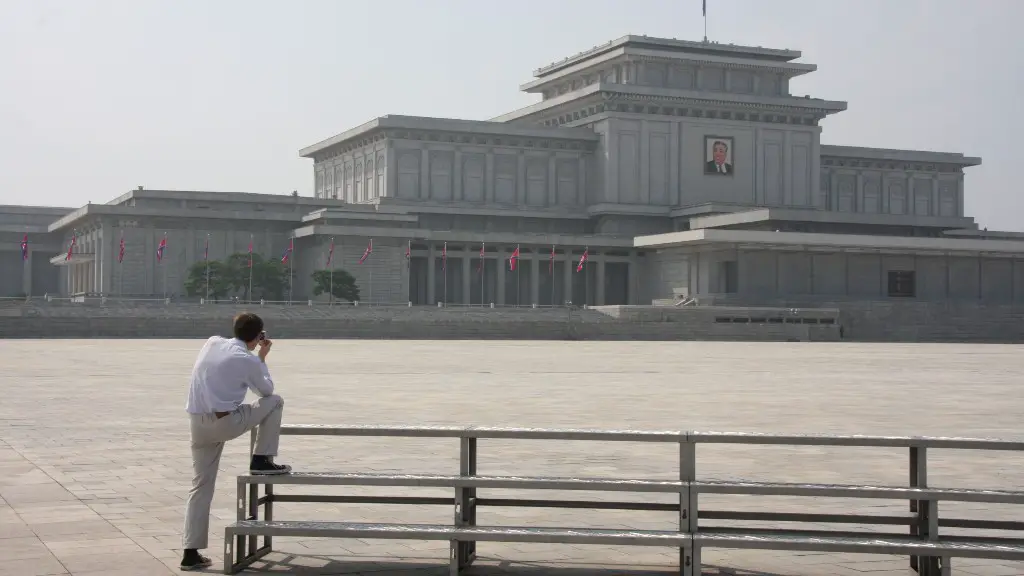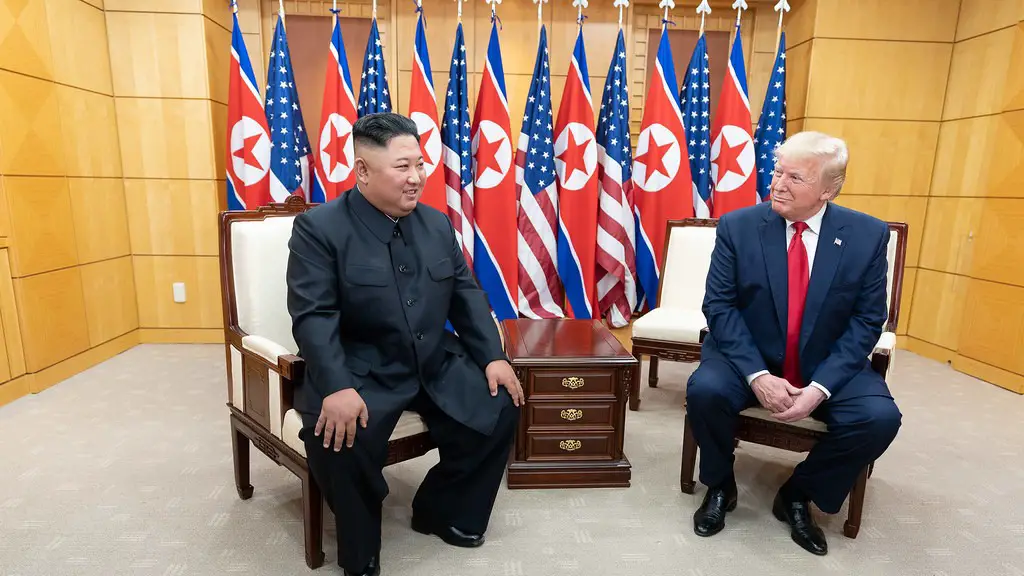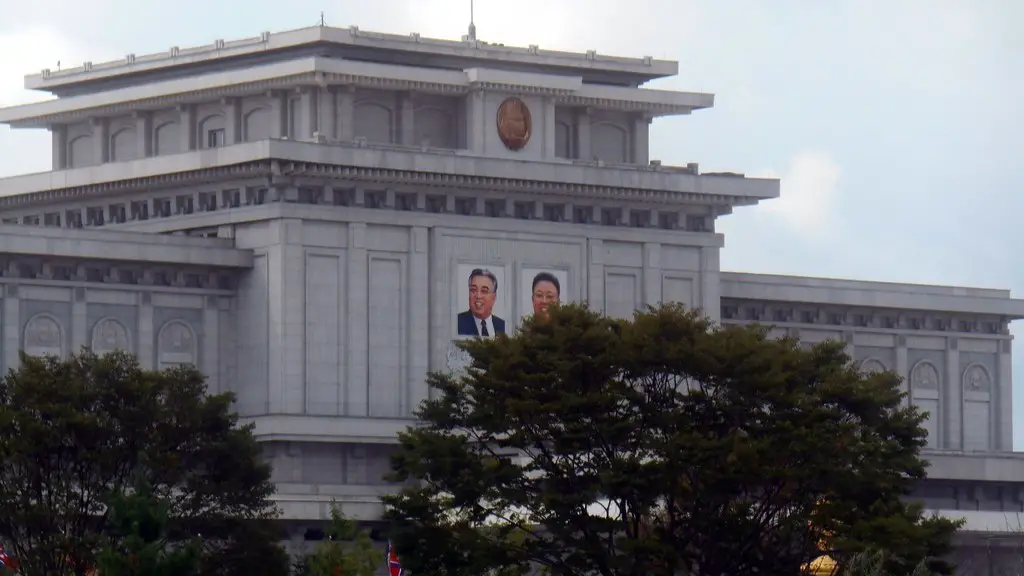Background Information
The Korean War, also known as the “Forgotten War”, was a conflict between North Korea and South Korea that lasted from June 25, 1950 until an armistice was signed on July 27, 1953. The conflict began when North Korean forces invaded South Korea, a country that had been established following the formal partition of Korea at the end of World War II. The purpose of the invasion was to unify the entire peninsula under a communist state. Although the war ended in a stalemate, with no resolution to the conflict, it had a profound impact on both countries and the region.
Relevant Data
Today, North and South Korea remain politically and economically divided, and the two sides have been riven by decades of mistrust and animosity. The two Koreas are heavily armed and remain in a state of tension and hostility. North Korea is widely believed to possess nuclear weapons, and it has invested heavily in military and missile technology. South Korea, for its part, maintains a strong security alliance with the United States and possesses a sophisticated defense system and an economy that is one of the most powerful in East Asia.
Perspectives From Experts
Experts are divided on why the two Koreas continue to be in a state of tension and conflict. Some experts suggest that the animosity between the two sides is rooted in the original division of Korea, a decision that was imposed on the Korean people by the superpower of the day. Other experts point to ongoing ideological differences between the two countries and the failure to fully resolve the Korean War as contributing factors to the hostility.
Own Insights and Analysis
The Korean conflict is complex and multi-faceted, and it is difficult to identify a single cause for the ongoing tension and mistrust between North and South Korea. Ideological differences remain an important element, as does the failure to fully resolve the Korean War. However, the lasting legacy of the Cold War and the imperialist interventions of the past are also important factors. The result is a complex and tense situation that has been further complicated by the emergence of nuclear weapons and the ambitions of both North and South Korea to assert themselves regionally and globally.
Economic Consequences
The ongoing tension and hostility between North and South Korea has had a significant economic impact on both countries. In South Korea, the ongoing tension and lack of stability have severely constrained economic development and have created a climate of uncertainty which has hurt investment and consumer confidence. The situation is even more pronounced in North Korea, where the lack of foreign investment and economic isolation due to sanctions have had a severe impact on the country’s economy.
Political Division
The political divide between North and South Korea is perhaps the single most important factor in the ongoing tension between the two countries. North Korea is an authoritarian state with a heavily centralized and strictly controlled political system, while South Korea is a democratic society with a flourishing civil society and a vibrant economy. The two countries remain divided along ideological lines, and there are few formal channels for constructive dialogue.
Changing Global Context
The past decade has seen a shifting global context which has had a significant impact on the Korean conflict. The emergence of a multipolar world has given North Korea greater leverage in international affairs, while South Korea has sought to increase its global reach through economic and political alliances with other countries. These developments have further complicated the already tense relationship between North and South Korea, as both countries strive to assert their own interests in the region.
Uncertain Future
Whether the two Koreas will eventually find a peaceful resolution to their conflict remains unclear. It is clear, however, that the current situation is unsustainable and is having a profoundly negative impact on the region. In order to move forward, both countries must take meaningful steps to reduce tensions and bridge the ideological divide between them.
Historical Division
The Korean War and its legacy of division and mistrust has had a deep-seated impact on the two Koreas. The formal partition of the Korean peninsula following World War II set the stage for a long and bitter conflict, and the legacy of this division can still be felt today. The Korean War has become an important rallying cry for both sides, and the emergence of nuclear weapons has aggravated the situation further.
Nuclear Armament
The emergence of nuclear weapons in North Korea has further complicated the already tense relationship between the two countries. North Korea’s possession of nuclear weapons has raised fears of regional instability and the potential for conflict, while also giving the country additional leverage in regional affairs. South Korea has sought to contain this threat through economic sanctions and military deterrence, but these efforts have yet to yield a concrete resolution.
Military Parity
The two Koreas both maintain large and well-equipped militaries, making the potential for armed conflict all the more likely. North Korea, for example, has a large and relatively sophisticated conventional military that is among the largest in the world. South Korea also has an impressive and formidable conventional military, as well as a sophisticated defense system that is bolstered by its security alliance with the United States. This raises the potential for an escalating conflict should tensions between the two sides continue to rise.
Diplomatic Options
In order to move forward, both sides must take steps to reduce tensions and explore diplomatic options. International engagement and dialogue are key to making progress in resolving the Korean conflict, and both sides should look to develop formal channels of communication to reduce the risk of conflict. There have been some positive developments in recent years, including a joint agreement to denuclearize the Korean Peninsula and the re-opening of diplomatic ties between the two countries.



